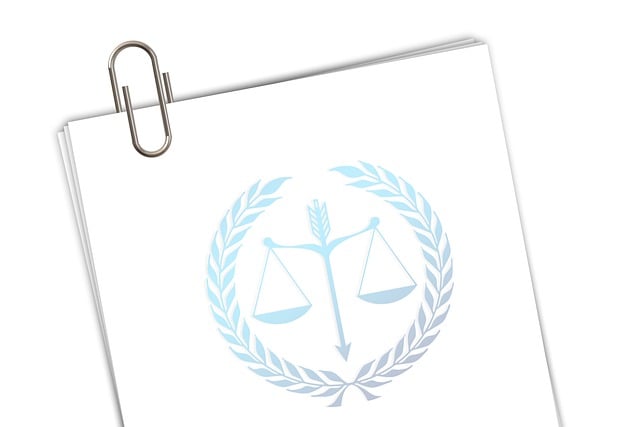Healthcare providers face significant legal challenges within a complex regulatory landscape, underscoring the critical need for administrative law expertise. Common issues include patient record mismanagement, contractual misunderstandings, and non-compliance with diverse regulatory standards, each carrying substantial penalties. Skilled attorneys navigate this terrain to ensure compliance, protect reputations, and avert costly disputes. Understanding these complexities is essential for defending against charges and achieving positive outcomes in high-stakes cases, requiring a delicate balance between patient autonomy and institutional protocols. Staying abreast of notable administrative law cases empowers healthcare professionals to adapt best practices and avoid potential pitfalls.
“Unraveling the complex landscape of healthcare legal issues demands a deep dive into administrative law, where regulatory compliance and patient rights intersect. This article explores critical aspects of understanding common issues in administrative law cases within the healthcare sector. From navigating bureaucratic intricacies to safeguarding patient privileges, we delve into the mistakes that can lead to legal disputes, offering insights through case studies. By examining these key areas, healthcare providers can better equip themselves to mitigate risks and ensure ethical, compliant practices.”
- Understanding Administrative Law in Healthcare: A Foundation for Legal Issues
- Common Mistakes Leading to Legal Disputes in Healthcare Administration
- Patient Rights and Privileges: Legal Protections and Challenges
- Regulatory Compliance and Its Impact on Legal Cases in Healthcare
- Case Studies: Notable Administrative Law Cases in the Healthcare Sector
Understanding Administrative Law in Healthcare: A Foundation for Legal Issues

Understanding Administrative Law in healthcare is crucial as it forms a robust foundation for tackling legal issues within this complex sector. This branch of law governs various aspects, from regulatory compliance to dispute resolution, ensuring fairness and efficiency in patient care delivery. Common issues in administrative law cases often arise from misunderstandings or non-adherence to these regulations, impacting everything from billing practices to licensing and certification.
For both corporate and individual clients, navigating the intricacies of administrative law is essential to avoid costly mistakes and legal battles. Skilled attorneys who specialize in this area can help healthcare providers interpret complex rules, achieve extraordinary results, and maintain compliance, ultimately safeguarding their reputation and ensuring a seamless operational flow.
Common Mistakes Leading to Legal Disputes in Healthcare Administration

In the complex realm of healthcare administration, several common mistakes often lead to legal disputes, with repercussions that can be significant for all parties involved. One of the primary issues is the mismanagement of patient records, where errors in documentation or inadequate security measures can result in privacy breaches and subsequent legal action. Additionally, contractual misunderstandings are prevalent; clear agreements between healthcare providers, insurance companies, and patients are essential to avoid conflicts over coverage, treatment plans, and billing practices.
Another frequent mistake is the failure to adhere to regulatory compliance standards, which can vary across different jurisdictions. Non-compliance may include issues like licensing, record-keeping, and reporting obligations. In high-stakes cases, where a general criminal defense strategy might be employed, these administrative lapses can lead to severe consequences, including fines, license revocation, and even criminal charges. Organizations with an unprecedented track record of success in navigating these legal complexities are better equipped to protect themselves from costly disputes.
Patient Rights and Privileges: Legal Protections and Challenges

In the realm of healthcare legal issues, patient rights and privileges are paramount, protected by a complex web of regulations designed to ensure their safety and well-being. These protections include access to medical records, informed consent for treatments, and privacy regarding personal health information. However, navigating these rights can present common challenges in administrative law cases, where disputes often arise from misunderstandings or breaches of protocol. For instance, patients may face difficulties in accessing their records due to bureaucratic hurdles, leading to delays in diagnosis and treatment.
Achieving extraordinary results in high-stakes cases related to patient rights requires a deep understanding of both the legal framework and the unique dynamics of healthcare. Lawyers must adeptly navigate the intricate balance between ensuring patient autonomy and upholding institutional policies. By carefully examining each case, they can avoid indictments that may arise from well-intentioned but protocol-violating actions, thereby safeguarding not just patients’ rights but also the reputation of healthcare institutions.
Regulatory Compliance and Its Impact on Legal Cases in Healthcare

Regulatory compliance is a cornerstone in healthcare operations, but it can also be a double-edged sword when it comes to legal cases. While strict adherence to regulations may seem like a foolproof defense, it often becomes a complex issue in administrative law suits. Healthcare providers and facilities face numerous regulatory requirements, from patient record-keeping to medication management protocols, and non-compliance can lead to severe consequences. These common issues in administrative law cases can result in substantial fines, licensing revocations, and even criminal charges for individuals involved.
The impact of regulatory non-compliance on legal outcomes is significant, especially in high-stakes cases involving white collar and economic crimes. Organizations that fail to maintain proper protocols may find themselves facing complex legal strategies aimed at proving negligence or intentional misconduct. While winning challenging defense verdicts isn’t impossible, the burden of proof often lies heavily on the healthcare entity, requiring meticulous documentation and rigorous adherence to established procedures.
Case Studies: Notable Administrative Law Cases in the Healthcare Sector

The healthcare sector is unique in its legal landscape due to complex regulations and a delicate balance between patient care and administrative compliance. Examining notable administrative law cases provides valuable insights into common issues faced by healthcare providers. These cases often revolve around regulatory interpretations, licensing disputes, and ethical dilemmas, with far-reaching implications for the industry.
For instance, several high-profile instances have shed light on general criminal defense strategies in healthcare settings. Across the country, similar patterns emerge—from Medicare fraud investigations to malpractice lawsuits. Understanding these cases is crucial as they shape legal precedents and best practices, ensuring healthcare professionals remain vigilant against potential legal pitfalls. Whether through proactive compliance measures or robust defense strategies, staying informed about notable administrative law cases empowers healthcare entities to navigate this intricate regulatory environment effectively.
The healthcare industry faces unique legal challenges, with administrative law playing a pivotal role in managing these complexities. By understanding common issues in administrative law cases, such as patient rights, regulatory compliance, and proper documentation, healthcare providers can mitigate risks and avoid costly disputes. Learning from notable case studies featured in this article is essential for navigating the intricate landscape of healthcare administration, ensuring patient care remains at the forefront while adhering to legal requirements.






